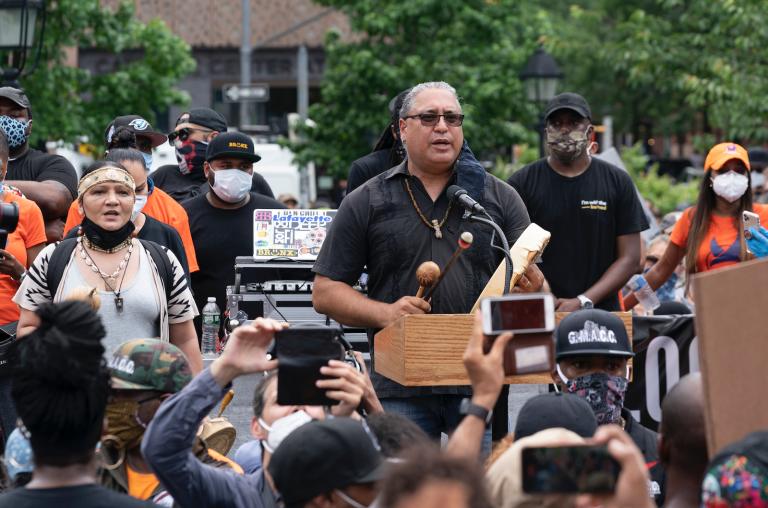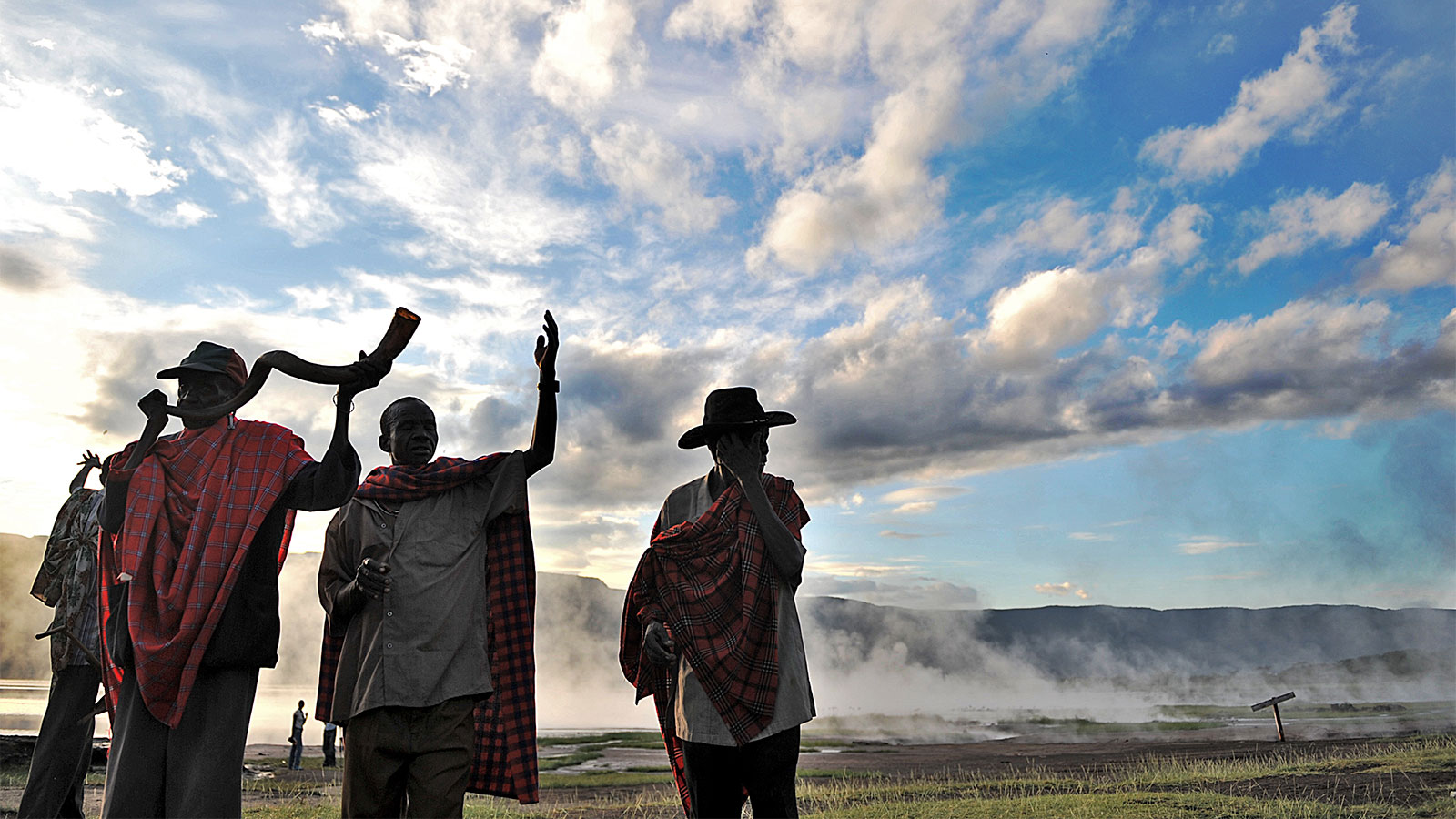This story is published as part of the Global Indigenous Affairs Desk, an Indigenous-led collaboration between Grist, Indian Country Today, and High Country News.
In the 1970’s, the Kenyan government evicted hundreds of Indigenous Endorois families from their homelands to create the Lake Bogoria National Reserve. The park is known for its hot springs, beautiful Rift Valley landscape, and large flamingo population. The Endorois were devastated. Disconnected from their homelands and traditions, the Endorois faced poverty, language loss, separation from cultural landmarks, and other threats. “It took away our sense of belonging,” said Carson Kiburo, Endorois and Executive Director of the Jamii Asilia Centre. “We have lost our culture.”
The Endorois challenged the eviction in court, eventually taking their case to the African Commission on Human and Peoples Rights. In 2010, the Commission ruled that Kenya had violated the Endorois’ human rights and provided seven recommendations for restitution and compensation, including the return of land, providing access for animal grazing and ceremony, and financial damages. The Commission established a three month timeline for the Kenyan government to provide a progress report, but 12 years later, the Endorois say that Kenya has failed to follow through on the Commission’s core recommendations.
This week, Kiburo is demanding Kenya adopt the Commission’s other recommendations and using the United Nations’ Permanent Forum on Indigenous Issues to call for stronger international action to support the Endorois in defending their rights.
“We want to retain our sense of belonging, our culture, our food sovereignty, our spirituality, and contribute to humankind,” Kiburo said. “That’s all we’re asking.”
Neither Kenya’s Wildlife Service or National Commission on Human Rights immediately responded to a request for comment.
Kiburo says he hopes the Endorois’ situation will highlight the dangers global conservation efforts pose to Indigenous communities. In Democratic Republic of the Congo, internationally-supported park guards have killed at least 20 Indigenous Batwa people in Kahuzi-Biega National Park in the name of conservation. In Tanzania, more than 100,000 Indigenous Masaai people are facing eviction from the Ngorongoro conservation area.
“What happened to my people is about to be repeated.” he said “It doesn’t make sense.”
Jennifer Corpuz, Kankanaey Igorot from Northern Philippines and Senior Global Policy & Advocacy Lead for Nia Tero, said that harmful conservation practices are a widespread issue. Pointing to examples from Thailand, the Democratic Republic in the Congo, and other countries, Corpuz says that evicting Indigenous people in the name of conservation is not only a violation of human rights, but also a threat to biodiversity. “This cannot be allowed to continue because when you displace the traditional authorities, it becomes difficult to protect it,” she said, adding that Indigenous land represents “islands of biodiversity in a sea of degradation.”
Joan Carling, Global Executive Director of Indigenous Peoples Rights International, says that both national reforms and international enforcement mechanisms are needed to ensure Indigenous peoples’ right to live on and defend their land is upheld. “We must make sure that there are laws that recognize our land rights and the way we manage our resources,” she said. “They cannot penalize us when we do our traditional occupations or livelihoods in our area.”
Kiburo, who is also a student at Kabarak Law School in Kenya, says that the Endorois have to pay to access the land where their ancestors are buried and are not permitted to perform their ceremonies or prayers on the land. Restoring that access is one of the Endorois’ primary demands, however, Kiburo says the Kenyan government is the main obstacle. “Those economic and social rights are very much enshrined in the constitution of Kenya,” he said. “[The government is] just not committed.”
Editor’s note: Nia Tero is a funding partner with Grist. Funding partners have no role in Grist’s editorial decisions.



